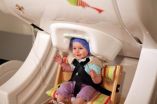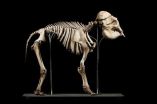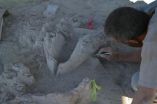(Press-News.org) CORAL GABLES, Fla. -- It's well known that when a person takes steps to make amends for a wrongdoing, the victim is more inclined to forgive and forget. However, exactly why that happens is less obvious and poorly understood. In a recent study, scientists made substantial progress in explaining the psychological processes that make forgiveness happen.
Their findings show that peacemaking efforts such as apologies, offers of compensation and owning up to one's responsibility increase forgiveness—and reduce anger—by making the aggressor seem more valuable as a relationship partner and by causing the victim to feel less at risk of getting hurt again by the transgressor.
"All of the things that people are motivated to do when they have harmed someone they care about really do appear to be effective at helping victims forgive and get over their anger," says Michael McCullough, professor of psychology in the University of Miami College of Arts and Sciences and principal investigator of the study. "People often think that evolution designed people to be mean, violent, and selfish, but humans need relationship partners, so natural selection probably also gave us tools to help us restore important relationships after they have been damaged by conflict."
For the study, 356 young men and women completed questionnaires, as well as an 8-minute interview about the transgression they had experienced and their feelings toward the person who had harmed them.
The participants also spent four minutes preparing a short, first-person speech about the transgression and the transgressor; they then delivered the speech into a video camera, as if the camera were the person who had harmed them.
Finally, the participants completed a 21-day online survey to measure forgiveness. To describe their feelings about their aggressors, respondents chose from a list of statements such as "I'm trying to keep as much distance between us as possible," "I'm going to get even," "he/she wants our conflict to be over," and "he/she does not intend to wrong me again," among others.
"It's one of the largest, longest, and, we think, most definitive studies of the effects of conciliatory gestures on human conflict resolution ever conducted," McCullough said.
The findings show that the extent to which a transgressor offered conciliatory gestures to their victims was directly proportional to the extent to which those victims forgave over time. Conciliatory gestures also appeared to change the victim's perceptions about the relationship and the aggressor.
One basic scientific implication of the results is that humans have a psychology for conflict resolution that is very much analogous to the psychology that other non-human group-living animals have for restoring valuable relationships.
"Many group-living vertebrates, but particularly mammals, seem to use 'conciliatory gestures' as signals of their desire to end conflict and restore cooperative relationships with other individuals after aggressive conflict has occurred," McCullough said. "We seem to have a similar psychology as well."
The study, "Conciliatory gestures promote human forgiveness and reduce anger," is now published in the journal Proceedings of the National Academy of Sciences. Other authors are Eric J. Pedersen; from UM's Department of Psychology; Evan Carter, from University of Minnesota, and Benjamin A. Tabak from University of California, Los Angeles. All the co-authors were graduate students at UM's Department of Psychology at the time the work was conducted.
The next step for the researchers is to conduct experimental work. If the apparent associations of conciliatory gestures with more forgiveness and perceived relationship value (as well as with less anger and perceived exploitation risk) really are cause-and-effect relationships, it should be possible to make people more forgiving in the laboratory through apologies, offers of compensation and other conciliatory gestures.
The researchers would also like to see if it's possible to build "cultures of forgiveness" by experimentally building up relationship value and reducing the risks of interactions with anonymous strangers who are interacting within groups.
INFORMATION:
The University of Miami's mission is to educate and nurture students, to create knowledge, and to provide service to our community and beyond. Committed to excellence and proud of our diversity of our University family, we strive to develop future leaders of our nation and the world.
The power of making amends
A new study from researchers at the University of Miami reveals how conciliatory gestures promote human forgiveness
2014-07-14
ELSE PRESS RELEASES FROM THIS DATE:
New research suggests soluble corn fibre may boost calcium absorption
2014-07-14
Hoffman Estates, IL – Around the globe, fibre and calcium intakes are below the levels recommended by experts1,2,3 contributing to potential long-term public health implications1,3,4. New research, published this month in the British Journal of Nutrition, shows soluble corn fibre (SCF) may not simply boost fibre intake when added to foods, but can also increase the amount of beneficial bacteria present in the gut, while enhancing calcium absorption in adolescents5. SCF is a prebiotic fibre that is well tolerated, and is easily incorporated into foods or beverages to boost ...
Research: Business should embrace 'boomerang employees'
2014-07-14
CHAMPAIGN, Ill. — The return of LeBron James to the Cleveland Cavaliers may have riveted the sports world and social media, but the phenomenon of "going home," whether to a geographic location or a former job, is not unique to professional athletes.
According to two studies co-written by a University of Illinois expert in organizational behavior and human resources management, organizations of all types are beginning to recognize and embrace the value of recruiting and welcoming back former employees.
From infantry soldiers to chief executives, accountants and professional ...
Months before their first words, babies' brains rehearse speech mechanics
2014-07-14
Infants can tell the difference between sounds of all languages until about 8 months of age when their brains start to focus only on the sounds they hear around them. It's been unclear how this transition occurs, but social interactions and caregivers' use of exaggerated "parentese" style of speech seem to help.
University of Washington research in 7- and 11-month-old infants shows that speech sounds stimulate areas of the brain that coordinate and plan motor movements for speech.
The study, published July 14 in the Proceedings of the National Academy of Sciences, ...
Moderate alcohol use associated with increased risk for atrial fibrillation
2014-07-14
Even in moderation, consumption of wine and hard liquor may be a risk factor for atrial fibrillation, an abnormally fast heartbeat that can lead to stroke, heart failure and dementia, according to new research published today in the Journal of the American College of Cardiology. The research did not identify a similar risk for moderate consumption of beer.
Researchers in Sweden studied 79,016 adults, ages 45 to 83, who completed an extensive questionnaire about food and alcohol consumption in 1997. The researchers followed the participants for up to 12 years through ...
Genome-wide analysis reveals genetic similarities among friends
2014-07-14
If you consider your friends family, you may be on to something. A study from the University of California, San Diego, and Yale University finds that friends who are not biologically related still resemble each other genetically.
Published in the Proceedings of the National Academy of Sciences, the study is coauthored by James Fowler, professor of medical genetics and political science at UC San Diego, and Nicholas Christakis, professor of sociology, evolutionary biology, and medicine at Yale.
"Looking across the whole genome," Fowler said, "we find that, on average, ...
Running for life: How speed restricts evolutionary change of the vertebral column
2014-07-14
One of the riddles of mammal evolution explained: the strong conservation of the number of trunk vertebrae. Researchers of the Naturalis Biodiversity Center and the University of Utah show that this conservation is probably due to the essential role of speed and agility in survival of fast running mammals. They measured variation in vertebrae of 774 individual mammal skeletons of both fast and slow running species. The researchers found that a combination of developmental and biomechanical problems prevents evolutionary change in the number of trunk vertebrae in fast ...
Meet the gomphothere: UA archaeologist involved in discovery of bones of elephant ancestor
2014-07-14
An animal once believed to have disappeared from North America before humans ever arrived there might actually have roamed the continent longer than previously thought – and it was likely on the list of prey for some of continent's earliest humans, researchers from the University of Arizona and elsewhere have found.
Archaeologists have discovered artifacts of the prehistoric Clovis culture mingled with the bones of two gomphotheres – an ancient ancestor of the elephant – at an archaeological site in northwestern Mexico.
The discovery suggests that the Clovis – the ...
Acute glaucoma discovered to be an inflammatory disease
2014-07-14
Researchers at the University of California, San Diego School of Medicine and Sun Yat-sen University in China have shown that acute glaucoma in mice is largely an inflammatory disease and that high pressure in the eye causes vision loss by setting in motion an inflammatory response similar to that evoked by bacterial infections.
The study, published in this week's issue of the Proceedings of the National Academy of Sciences, has immediate clinical relevance in treating the tens of millions of people worldwide from what is known as acute closed-angle glaucoma.
"Our research ...
CRISPR system can promote antibiotic resistance
2014-07-14
CRISPR, a system of genes that bacteria use to fend off viruses, is involved in promoting antibiotic resistance in Francisella novicida, a close relative of the bacterium that causes tularemia. The finding contrasts with previous observations in other bacteria that the CRISPR system hinders the spread of antibiotic resistance genes.
The results are scheduled for publication in PNAS Early Edition.
The CRISPR system has attracted considerable attention for its potential uses in genetic engineering and biotechnology, but its roles in bacterial gene regulation are still ...
Older adults nearly twice as likely to have memories affected by distractions
2014-07-14
Older people are nearly twice as likely as their younger counterparts to have their memory and cognitive processes impaired by environmental distractions (such as irrelevant speech or written words presented along with target stimuli), according to a new study from psychologists at Rice University and Johns Hopkins University School of Medicine. Whereas other studies had found that older adults are distracted by memories of prior similar events, this was the first study to convincingly demonstrate across several tasks an impairment from environmental distractions.
"Cognitive ...
LAST 30 PRESS RELEASES:
WHO calls for mental health to be central to neglected tropical disease care
Stacking the genetic deck: How some plant hybrids beat the odds
KRICT demonstrates 100kg per day sustainable aviation fuel production from landfill gas
High consumption of ultraprocessed foods may be linked to cancer survivors’ risk of death
Unsupervised strategies for naïve animals: New model of adaptive decision making inspired by baby chicks, turtles and insects
How cities primed spotted lanternflies to thrive in the US
UK polling clerks struggle to spot fake IDs, study reveals
How mindfulness can support GenAI use in transforming project management
Physical fitness of transgender and cisgender women is comparable, current evidence suggests
Duplicate medical records linked to 5-fold heightened risk of inpatient death
Air ambulance pre-hospital care may make surviving critical injury more likely
Significant gaps persist in regional UK access to 24/7 air ambulance services
Reproduction in space, an environment hostile to human biology
Political division in the US surged from 2008 onwards, study suggests
No need for rare earths or liquid helium! Cryogenic cooling material composed solely of abundant elements
Urban light pollution alters nighttime hormones in sharks, study shows
Pregnancy, breastfeeding associated with higher levels of cognitive function for postmenopausal women
Tiny dots, big impact: Using light to scrub industrial dyes from our water
Scientists uncover how biochar microzones help protect crops from toxic cadmium
Graphene-based materials show promise for tackling new environmental contaminants
Where fires used to be frequent, old forests now face high risk of devastating blazes
Emotional support from social media found to reduce anxiety
Backward walking study offers potential new treatment to improve mobility and decrease falls in multiple sclerosis patients
Top recognition awarded to 11 stroke researchers for science, brain health contributions
New paper proposes a framework for assessing the trustworthiness of research
Porto Summit drives critical cooperation on submarine cable resilience
University of Cincinnati Cancer Center tests treatment using ‘glioblastoma-on-a-chip’ and wafer technology
IPO pay gap hiding in plain sight: Study reveals hidden cost of ‘cheap stock’
It has been clarified that a fungus living in our body can make melanoma more aggressive
Paid sick leave as disease prevention
[Press-News.org] The power of making amendsA new study from researchers at the University of Miami reveals how conciliatory gestures promote human forgiveness



